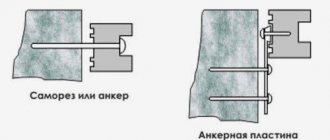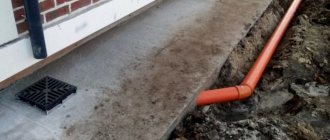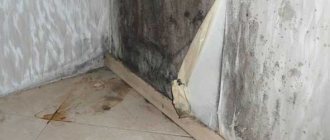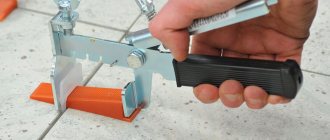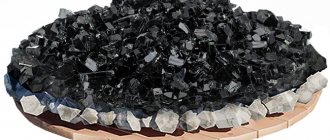Literary and artistic magazine – Floors
1
Floors
No. 1. December 2015
Literary and artistic magazine
© Literary and artistic magazine, 2015
Created in the intellectual publishing system Ridero
“Floors” No. 1 December 2015
Editor-in-Chief – Irina Terra
Editor of the poetry department - Igor Jerry Kuras Editor of the prose department - Ulya Nova Editor of the "Literary Cuisine" section - Vladimir Gandelsman Editor of the "Artist's Attic" section - Tanya Knossen-Polishchuk
Expert Council:
Vera Pavlova Dmitry Vodennikov Daniil Chkonia Zhenya Breido
Layout, design and layout – Ekaterina Stvolova
Illustrations:
cover, pp. 20, 68, 131 – Tanya Knossen-Polishchuk p. 5 – Yulia Wegener-Snaigala p. 65 – Evgenia Krikova p. 98, 100, 102 – Varya Kuleshenko p. 133 – portrait of Valery Chereshny, artist Yakov Hiram p. 142 – photograph by Naum Korzhavin, photographer Irina Terra
The magazine has electronic and printed versions. The printed magazine is published three times a year. It selects the best publications published in the electronic journal. The editors give preference to new, previously unpublished materials.
Magazine website: [broken link] www.etazhi-lit.ru
Email address: [broken link]
Vera Pavlova
City with snow
*** a city in which snow gets dirty in flight, a city in which bitter laughter is already in the zygote, a city in which a child swears in the womb, a city in which I managed to be born.
*** Twilight. Barking dogs. Dead bosom of waters. The fisherman bites with his nose. What, fisherman, isn’t biting? The fish takes the hook and pulls it: “What do you want, old man?” - Nothing.
*** Let's give the dog a nickname, and the cat a pseudonym, call out to the bird: “Bird!” - we’ll talk to the grass, we’ll stick our tongue out at the snake, we’ll answer the goat: “Bee!” You see, I can write not about myself.
*** A private dump by the fence, a public dump by the river... If only you knew what kind of rubbish the weeds grow from in our village!
*** If you frown, it means I have nothing to do with it. If I see a profile, it means you're driving. If you cut from the shoulder, the blood is on my shoulder. If you don't love me, then it's not me.
*** Who will cry with the weeping willow, who will make the mockingbird laugh, who will dare to make the one who fears happiness happy, who will appreciate a sad joke, who will not let the travesty boo, who will make the forget-me-not forget that it doesn’t have long to bloom?
*** Not to the bottom with Liza, but to the rails with Anna... On a sleepless, blizzard December night, I want one thing - to be desired, I need one thing - to be needed by the one who is sleeping. The elbow goes numb, love prompts from under the mattress: wake up - and there will be someone to lull, kill - and there will be someone to kill for.
*** Pipes and teenage agility. Coal and sting. Muse, what should I talk to you about? You didn't give birth.
*** The cut of a jacket will puzzle you, a dandelion will slip into your buttonhole... Personality is a collection of eccentricities. The combination will not be repeated. Not facial features - devilry. Sudden movements are not a pose. Personality is not a larva, it is a larva awaiting metamorphosis.
*** With God, into the sky, along the beaten path - fifteen hours from home to home. Happiness is grief that has been given a perfect form. A monument, not made by hands - from the tears I shed - an ice woman, with a nose like a carrot. Among tearholics, she could take an honorable place.
*** Chalet under the mountain, vineyard ligature... Residents of paradise, open up for the first and second! First. Second.
*** lovers of precise lines performed the night like a prayer and became more innocent for one more love and believed that the mercy would be granted to the colon to return each other’s innocence on the last wedding night.
Evgeniy Kogan
Unnecessary things
Iza Milkman was lucky almost the entire war, and in February 1944 his luck ran out - at one point. His unit was stationed near Zhitomir, preparing for an offensive further to the west. Izya was at the headquarters - funny, in round ridiculous glasses, the spare ones had recently broken, his ears stuck out like locators, a huge nose, freckles all year round and also this unruly hair - no matter how short Izya was cut, it still curled so much that stuck out in different directions. Izya was a staff clerk, Guard Major Valery Ignatievich Silantiev affectionately called him “my little Jew” and clicked his nose when Izya suddenly thought about something of his own, but he did not offend anyone. “This,” he said, “is my little Jew,” and no one bothered Iza, because the war hero Silantiev was respected and even a little afraid. There were rumors that in some battle he personally killed five Krauts, but this was not something to joke about. Izya adored Silantyev, and Silantyev felt it, which made him not only flick Milkman on the nose, but at that moment he even blushed a little with pleasure - “my little Jew.” By February 1944, they were inseparable, wherever Silantyev went, so did Milkman, only Valery Ignatievich did not take his clerk to the general, because military secrets were not for the protruding ears of a small-town Jew, even such a smart one.
They said that Izy’s family had perished in Terezin – it seemed that the inhabitants of his small Ukrainian town had been taken there. The Czech city of death, clean and beautiful, in a shallow canal there are some otters, and nearby there are rails laid along which Jews were transported to Auschwitz. Terezin turned into a ghetto during the war, and the concentration camp, small by German standards, was part of this town, where Jews were brought from different places. And Iza was lucky - he could write without mistakes, he spoke Russian with almost no accent, so at the beginning of the war he was drafted into the army, and immediately to the headquarters. And then he got to Silantiev, and from him, it seems, he learned about Terezin. They said that many survived there - the Germans set up a demonstration ghetto in Terezin for the world community, brought representatives of the Red Cross, even made a film - they say that the final solution to the Jewish question is moving forward in a civilized manner, as the solution to any issue in an enlightened Europe should be moving forward. Everyone was happy, except those Jews who were sent straight to the ovens of Auschwitz. It seems that Milkman's family was among the latter. But no one knew the details - the Jewish towns in Ukraine were empty, and there was no one to tell who was lucky, and was it even worth talking about luck at that time. However, Iza was lucky - he was under the protection of the headquarters dugout and personally of Comrade Silantiev, a war hero and officer who was not interested in Jews as a nation.
In the winter of 1944, the unit commanded by Silantyev found itself not far from Zhitomir. Slowly moving west, the troops of the Red Army shuffled with worn-out boots precisely across the land that Izya Milkman conventionally considered his own. Not knowing how to navigate, and before the war had never left his native place - crooked streets and a low white synagogue, Izya simply knew that somewhere here, very approximately, but still somewhere here he lived with his family , about which I haven’t heard anything for three years. And when it was the fifth day since the movement to the west had stalled for some reason, Izya asked Silantiev to take a walk - just to walk, to breathe the air of childhood. Silantiev suddenly became emotional, remembered his dear Mother Volga, his wife Maria Ivanovna, fishing and the clear, like a tear, moonshine, which was driven by an old neighbor with a gray beard and cunning in his eyes - he remembered and let his little Jew go. He just told me not to wander around until dark—you never know. But I didn’t have to wander until dark, because the luck that accompanied Izya the Milkman throughout the war had dried up - either God, about whom Izya sometimes thought, was distracted by something more important, or it just coincided, and only Izya found a mine for his misfortune , laid down unclear when and unknown by whom. The sappers had already worked here, and more than one thousand soldiers marched here on the way to the Great Victory, and the mine lay there, as if it was waiting for someone, and lo and behold, it waited. Izya didn’t have time to understand anything, but simply disappeared in an instant, dispersed into many small pieces so that there was nothing left of him. The roar of an exploding mine alarmed the soldiers and the dogs - the dogs began to bark in fear, having not had time to get used to the war in more than three years, and the soldiers ran around - some for duty, and some out of surprise, because they had been walking here just today, just minutes forty ago. But then the smoke cleared, the dogs fell silent, and it turned out that, fortunately, no one except Izy seemed to have been hurt.
1
End of introductory passage DID YOU LIKE THE BOOK?
This book costs less than a cup of coffee! FIND OUT PRICE
Magazine world
A literary and artistic magazine, consisting of an online version (site) and a printed version (selections based on publications on the site). Thus, the print magazine is a digest of the online magazine. The printed magazine is published four times a year (quarterly) and is distributed in Russia, the USA, Israel, Latvia, Canada, Italy and other countries, as well as in online stores. The magazine is licensed as a media outlet by Roskomnadzor in Moscow. Website address: https://etazhi-lit.ru
The magazine publishes prose and poetry of contemporary authors, interviews, essays, reviews, reports; permanent sections: “Exegi monumentum” (works of departed authors), “Literary kitchen”, “Musical living room”, “Artist’s attic”, “Main genre”, “Workshop”. The founders of the magazine: editor-in-chief - journalist Irina Terra (Moscow), editor of the poetry department - poet, writer Igor Jerry Kuras (Boston).
The magazine began its work in August 2015: the first publications appeared on the website, and already in December the first issue of the printed magazine was published. In two years, the number of subscribers to the magazine on social networks exceeded 10 thousand people, the number of readings of publications on the website is quite high (on average 2-3 thousand views per publication).
Presentations of the magazines took place in Moscow, St. Petersburg, Boston, New York, Washington, and Tel Aviv.
In September 2021, the editorial staff of the magazine became a laureate in the “Internet Media” category in the All-Russian journalistic competition “The Many Faces of Russia”. The competition is organized by the Republican Agency for Press and Mass Communications "Tatmedia" (Kazan) and its goal is to generate interest in the culture and art of various peoples living on the territory of the Russian Federation and beyond its borders.
From editor-in-chief Irina Terra:
“The magazine does not have an “ideology,” but adheres to the point of view that Russian literature knows no boundaries. In the era of the Internet and social networks, Russian literature is a collection of intellectual achievements of talented people who write in Russian and consider previous generations of Russian writers to be their predecessors, regardless of their place of residence. There are also no boundaries for readers living in different parts of the planet, but reading literature in Russian.
We will be happy if readers and authors share with us the joy of creating the magazine. We are growing. We are adding floor after floor. New authors find their publications on the pages of the magazine. New readers discover new poems, stories, essays, and interviews. We hope that the light from our floors will help someone in difficult times; will give someone a sense of belonging to the culture in which they grew up, but in which they may not currently live. And for the rest - it will give a feeling and understanding of the enormity of Russian culture, which extends across the entire planet beyond borders, states and ideologies.
This is our romantic dream, our hope: we believe in it and want our authors and readers, after reading the magazine’s publications, to believe in it with us.”
Poet Tatyana Voltskaya about the magazine:
“Perhaps the main feeling is freshness: the magazine is young, not flabby and not overgrown with connections and friendships that oblige one to much. For example, publishing an author who was once good, but now writes only out of inertia. Or a person from the circle of this author, or his student. There are no such chains on the “Etazhi”, and therefore it is easy to climb them. They are high, these “Floors”, but not too high - just by human standards, as they were built before - so as not to overwhelm passers-by with heaviness and grandeur.”
BIO
Irina Terra - journalist, interviewer. Lives in Moscow. Interviews were published in Moskovsky Komsomolets, Literary Russia, Children of Ra magazine, New World, etc. Winner of the Literary Russia weekly magazine for 2014 in the category for a fresh, non-trivial approach to interviews. Laureate of the Voloshin competition 2015 in the category “film poetry”, shortlisted in the category “journalism”. Member of the Union of Journalists of Russia. Editor-in-Chief of the literary and artistic magazine “Etazhi”.
At that moment I came face to face with death for the second time. Yes, I'm alive. But I was buried under some rubble, and everything was obscured by smoke and dust. Now I’m going to die, and this kind of death is even worse. When I die, I will be aware of everything. I will remain in this trap, slowly filling with smoke, and they will find me like one of the inhabitants of Pompeii.
I sat continuously thinking about my wife and son. But these were not the thoughts that the photographs of Jenny and Ben on my desk evoked in me. I began to imagine my family without me. I imagined that I would never be able to touch them again. Along with the thoughts of them, my composure suddenly returned: “I must try to survive.”
I tore my shirt and tied the pieces around my mouth and nose to provide some protection from the smoke. I crawled forward in pitch darkness. I had no idea where I was crawling, but I couldn’t afford to give up. Memories of those minutes still haunt me.
I saw a light. I can't say I was happy because I was terrified, but the light meant hope.
Fortunately, I was killed along with one of the firefighters. I got to this guy and held on to him like the last straw. He was completely exhausted, but he controlled himself much better than I did. I kept repeating: “What should we do?” I didn’t have a single rational thought left in my head. I was in survival mode. For example, I didn’t think that since the smoke was coming in this direction, I would crawl in the opposite direction, where fresh air was waiting for me. I just grabbed every opportunity.
The fireman looked like a big Irishman with a big bushy mustache. He had an axe. He looked at the wall, and it seemed solid, but then he wiped it with his hand, and it was glass. It was the glass wall of the Borders Bookstore. There was a door right next to her. He broke it open and it swung open.
Everyone moved towards the light. There were already a lot of us. People were screaming. We went into Borders, went upstairs and went outside. The dust was so thick that it almost obscured the light.
At that moment I still had no idea what was going on. I didn't know if it was a bomb explosion or something else. I didn't know if this was the end or just the beginning.
I walked into a cloud of dust. I crossed Church Street, a dim light began to penetrate through the dust, and I could already see something. I saw a lost, crying, frightened woman nearby. I stopped and asked, “Are you okay? Are you okay?" She couldn't speak. I moved on.
I walked along Vicey Street, using it as a guide. The dust cleared more and more, and I reached a completely empty intersection. Here an incredible sight awaited me: a cameraman with a camera in his hands stood near the NBC peacock van and, bent over, sobbed.
My head was foggy. I saw the bagel cart overturned and grabbed a couple of Snapples. I rinsed my mouth and washed my face with one, and drank the other. Then I ran again. The streets were in chaos.
Even though I've been to these places a million times, I was completely lost. I looked up and saw my building, the first tower of the World Trade Center. She was engulfed in flames. I looked for the other tower, because the Twin Towers had always been my guiding light. I didn't see her. I stood there and thought: “This is some kind of nonsense.” From that angle, the destruction was revealed in its entirety. I looked up and said, “Hundreds of people died today.” I tried to understand this fact, to put it in my mind. My wife comes from a Jewish family, and her grandparents talk about the Holocaust and human cruelty and bloodthirstiness. This behavior is natural for a person, I told myself. Unfortunately, I just had to face him personally.
Perhaps from the outside such a reaction seems strange. But I was just trying to grab onto at least something, at least some logic or justification, so as not to completely go crazy. I was raised in the traditions of Irish Catholicism, and I consider myself a believer. And I thanked God for sparing my life for the sake of my son. But I also tend to think logically. I'm alive because I managed to find shelter under a strong support structure that didn't collapse on me. I'm alive because a psychopath on a plane decided to crash into a building at a certain angle. I am alive because I went down this staircase and not that one. I can say this now. But at that moment I was just trying to regain some sanity.
Getty Images
I was still running when I heard the deafening crash again. Then I didn’t know that it was another tower that was falling—mine. A street cop saw me and asked, “Mate, are you okay?” It was clear that he was afraid to look at me. Not only was I covered in dust, but I was also covered in someone else’s blood. He tried to help, but it was clear that he was shocked by what he saw.
I looked for a pay phone to call my wife, but everywhere was busy. My wife didn't hope for a second that I survived. She turned on the TV and said: “Eighty-first floor. Both buildings collapsed. No chance". All these feelings made it hard for her to look at Ben. “Is it worth thanking God that I have a son? Will I always remember Mike when I look at him? In such a situation, you cannot escape such thoughts.
Finally I came across a machine where a woman was just standing and looking up. I pushed her out of the way. It may have been rude, but I had to contact the family. I called Boston and a mechanical voice said, “Deposit six dollars and twenty-five cents.” I took out a quarter and called my brother at New York University. I got an answering machine. "I'm alive! I'm alive! Call Jenny! Let everyone know that I'm alive! It was thirty-four minutes past ten.
I ran to the university where my brother Chris worked. I am my parents' youngest of six children. My two sisters are the eldest, and then it was all boys. Chris is the second oldest of us. Typical big brother. As a child, he bullied me and slapped me. Perhaps his office had the best view of everything that was happening. But he left work thinking that his brother was dead. Unable to look back, he walked across the Manhattan Bridge home to Brooklyn.
On my way to NYU, I met a guy I didn't know named Gary. He had a cell phone. He still couldn't get through to Boston. I said, “I need to go to New York University!” and ran on. But he kept calling Boston and eventually got through to my family. By that time, four of my five brothers and sisters were at home. My wife's father left New York with a black suit in his car.
The university staff welcomed me with open arms. "I do not need anything. Just call my family,” I said. They called and called, but could not get through. Finally they managed to contact Boston.
I said:
- Jenny, it's me.
She moaned. I didn't recognize her voice.
“I’m alive, I’m alive,” I repeated. - I love you. I love you.
We cried nonstop. Then the connection was lost.
Then I went to the toilet to clean myself up, and suddenly I realized that I could no longer open my eyes. They are swollen. I understood that I was not blind, but if I raised my eyelids, even the weakest light brought acute pain. While I was running, I didn't feel it. It seemed to happen as soon as I was safe and the adrenaline subsided.
Doctors at the university medical unit said:
- Yes, your eyes are all scratched.
They put drops in my eyes, but in order to see what was wrong with them, I needed more sophisticated equipment. As a result, one hundred and forty-seven pieces of fiberglass were taken out of my eyes.
Chris came to pick me up from Brooklyn and I hugged him tightly. He later said:
“You know, Michael, all these years I put you in sleeping bags and beat you just to prepare you for such misfortunes.”
Getty Images
When we returned to me, I was exhausted and everything that happened fell on me at once. I cried like never before in my life. I finally let myself go and I felt better. My brother helped me get ready, and we drove to Westchester, where my wife and family were going. Jenny rushed to the door as fast as she could. I remember hearing her footsteps: “tap-tap-tap-tap-tap.”
My mother was there too. My dad. My father-in-law. Everyone hugged me. Then they brought me my son. By his hooting, I realized that he was happy. I hugged him and from that moment my healing began.
Then I went to Maine to sit by the ocean for a few days and collect my thoughts. I saw all my old friends. It was amazing. Everyone I know called me and told me they loved me. It’s like finding yourself alive at your own funeral.
After that, I asked myself for some time: how can I get back to work now? How can I enthusiastically sell a T1 line to someone? I had a list of people I was supposed to work with in the next year on my desk, and now it was burned out. For the life of me, I can’t remember their names. It will cost me a quarter of my income, if not more. And guess what? Don't care! I'm alive and I'm here. And this is the most important thing.
I lost a friend in the second tower. People like him inspire sympathy at first sight. Howard Boulton. Wonderful person. His baby was born three months earlier than mine. He worked on the eighty-fourth floor, and I on the eighty-first. The last time he spoke to his wife was on the phone. He told her, “Something happened to the first tower of the World Trade Center. Everything is very bad. I'm afraid Michael Wright has been hurt. I'm driving home". I'd like to think that Howard wasn't scared, because I wasn't scared on the stairs. I would like to think that he heard the roar at the same time as I did and no longer felt or realized anything else.
DOUG KANTER/AFP via Getty Images
I went to his funeral. The sight of his wife and child would upset you even if you didn't know them. But it was even harder for me to see them. My family could have been in their place. Until now - and even now - the hardest blow of my life was learning that my brother Brian, who is a year older than me, was suffering from cancer. He and I are practically twins. He has germ cell breast cancer. Recently he told me good news: he can be operated on and the tumor can be removed. But the bad news is that a lung may be taken away along with it. Before September 11th, the risk that he might lose a lung would have discouraged me. But I realized for myself that I love my brother with unconditional love. I love him not at all because he goes jogging in the mountains with me. My first thought was: “Thank God they will cut out his tumor.”
Fortunately, I'm able to deal with this. I have an incredibly close-knit family that supports each other in everything, and many friends. I went to see a therapist and can answer all the standard questions positively. Are you experiencing unreasonable fear? Yeah. Have you stopped enjoying your favorite activities? Yeah. Do you know the feeling of claustrophobia? Yeah. I have nightmares. I jump when I hear the sirens. But what haunts me most is the smell. Talk to anyone who was within ten blocks of the towers and they will tell you the same thing. My nose, mouth and ears were filled with human dust. I took it out of my ears for weeks.
For some time I allowed myself some extravagances. I don't think what happened will turn me into Rambo or make me sleep with nineteen-year-old girls. Yes, it will not be easy for me for some time. There will be scars on my soul. But I don’t think this will torment me for long.
I don’t ask myself: “Why?” Someone will say: “You got out, you are destined for a great destiny.” Great, I tell them. I got out, so why don’t you squeeze me at the same time?

